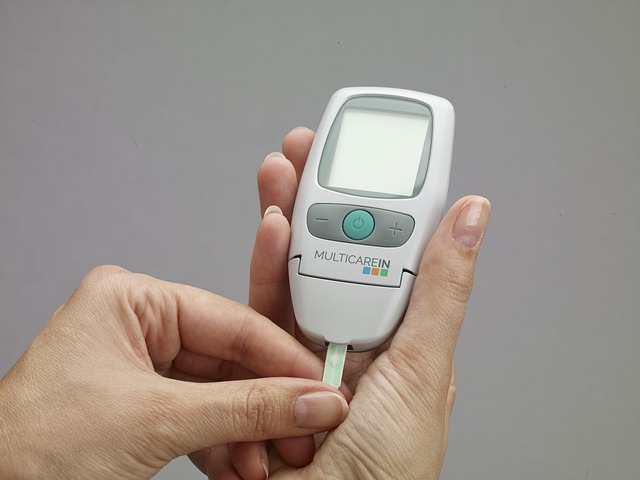In the UK, home cholesterol tests provide a convenient way to monitor LDL ('bad') and HDL ('good') cholesterol levels, helping individuals manage their cardiovascular health. Normal total cholesterol below 5.2mmol/L is considered optimal, while elevated levels indicate potential heart disease risk. Regular monitoring via repeat tests every few months, alongside balanced diets and exercise, is essential for maintaining healthy cholesterol profiles.
Cholesterol is a waxy substance found in your blood, essential for bodily functions but high levels can increase heart disease risk. Understanding cholesterol and why it matters is the first step towards better health. A convenient way to monitor your cholesterol is with a UK blood test at home, providing quick and accurate results without the clinic visit. This article guides you through the process, from understanding cholesterol to interpreting results and taking next steps for optimal health.
Understanding Cholesterol and Why It Matters
Cholesterol is a waxy substance found in all cells in the body, playing a vital role in various bodily functions. It helps in building cell membranes, producing hormones, and synthesising vitamin D. However, having too much cholesterol in your blood can be detrimental to your health, especially when it builds up on the walls of arteries, leading to atherosclerosis. This condition increases the risk of heart disease and stroke, making it crucial to monitor cholesterol levels, particularly for individuals in the UK considering a home blood test.
Cholesterol comes in two main types: LDL (low-density lipoprotein) cholesterol, often referred to as ‘bad’ cholesterol, and HDL (high-density lipoprotein) cholesterol, known as ‘good’ cholesterol. A simple UK blood test at home can measure these levels, providing valuable insights into your cardiovascular health. Understanding your cholesterol profile is the first step towards making positive lifestyle changes to manage and maintain healthy cholesterol levels.
UK Home Blood Tests: A Convenient Option
In the UK, one convenient and accessible way to monitor cholesterol levels is through home blood tests. These tests offer a simple and private alternative to traditional medical settings, allowing individuals to take control of their health. With just a small sample of blood obtained at home, patients can send the test kit to a certified laboratory for analysis. This method eliminates the need for frequent clinic visits, making it ideal for those with busy schedules or specific health concerns.
Home blood tests for cholesterol in the UK are designed to provide accurate results, offering a quick and efficient way to assess cardiovascular health. Many reputable companies now offer these tests, ensuring convenience, discretion, and peace of mind. This option is particularly beneficial for people who want regular checks without the hassle of traveling to a healthcare facility.
Interpreting Results and Next Steps
Interpreting your results is a crucial step in understanding your cholesterol levels and taking appropriate action. Most UK blood tests at home provide readings for total cholesterol, LDL (low-density lipoprotein), HDL (high-density lipoprotein), and sometimes triglycerides. Normal levels for total cholesterol are below 5.2mmol/L, with optimal levels for HDL being above 1.0mmol/L for men and above 1.3mmol/L for women. If your results show elevated LDL or total cholesterol, it could indicate an increased risk of heart disease.
The next steps depend on your individual results. If your cholesterol levels are within a healthy range, congratulations! Maintain a balanced diet and regular exercise to keep them that way. However, if they’re high, consult a healthcare professional who can advise on lifestyle changes or, if necessary, prescribe medication to help lower your cholesterol levels. Regular monitoring is key; repeat UK blood tests at home every few months to track progress and make any adjustments needed.
In light of the above, it’s clear that monitoring cholesterol levels with a convenient UK blood test at home is a simple yet powerful step towards managing your health. By understanding your results and taking appropriate actions, you can significantly reduce cardiovascular risks and enjoy a healthier lifestyle. This accessible method empowers individuals to take charge of their well-being, making regular check-ups an easy and effective part of their routine.
